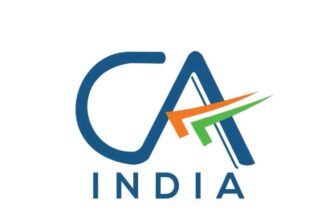
For UK startups and SMEs, managing finances efficiently is crucial to growth and sustainability. A pivotal decision in this regard is choosing between in-house accounting and outsourcing accounting services. Each approach offers distinct advantages and challenges, and the optimal choice depends on specific business needs, resources, and long-term goals.
Understanding In-House Accounting
In-house accounting involves hiring dedicated accounting staff who work directly within the company. This approach provides businesses with immediate access to financial data and direct control over accounting processes. In-house accountants develop a deep understanding of the company’s operations, enabling tailored financial strategies and quick responses to financial queries.
Advantages:
- Immediate Access and Control: Direct oversight of financial operations allows for swift decision-making and adjustments.
- Tailored Financial Strategies: In-house accountants can customize financial plans to align closely with the company’s objectives and industry nuances.
- Enhanced Communication: Proximity facilitates clearer communication and quicker resolution of financial issues.
Challenges:
- Higher Costs: Salaries, benefits, training, and overhead expenses can be significant, especially for small businesses.
- Limited Expertise: In-house teams may lack specialized knowledge in complex areas like tax planning or international regulations.
- Resource Intensive: Recruiting, training, and retaining skilled accounting personnel require considerable time and investment.
Exploring Outsourced Accounting Services
Outsourcing accounting services entails contracting external professionals or firms to handle financial tasks. This model offers scalability and access to specialized expertise without the overhead of maintaining an in-house team.
Advantages:
- Cost Efficiency: Outsourcing can be more affordable than hiring full-time staff, as businesses pay only for the services they need.
- Access to Expertise: Outsourcing firms often employ specialists with up-to-date knowledge of tax laws and financial regulations.
- Scalability: Services can be adjusted based on the company’s growth or seasonal demands, providing flexibility.
- Advanced Technology: Many outsourcing providers utilize the latest accounting software and tools, ensuring accuracy and efficiency.
Challenges:
- Reduced Control: Delegating financial tasks means less direct oversight and potential delays in communication.
- Data Security Concerns: Sharing sensitive financial information with external parties requires stringent security measures.
- Integration Issues: Aligning outsourced services with existing business processes can pose challenges.
Comparative Analysis: In-House vs. Outsourcing
| Factor | In-House Accounting | Outsourced Accounting |
| Cost | Higher due to salaries, benefits, and overhead | Lower, pay only for services rendered |
| Control | Full control over financial operations | Less direct control, dependent on provider |
| Expertise | Limited to in-house team capabilities | Access to specialized professionals |
| Scalability | Challenging to adjust quickly | Easily scalable to meet business needs |
| Technology | Requires investment in software and training | Utilizes advanced tools and software |
| Compliance | Responsibility lies entirely within the company | Providers ensure adherence to regulations |
| Flexibility | Less adaptable to changing business needs | High flexibility to adapt to business changes |
Making the Right Choice for Your Business
The decision between in-house accounting and outsourcing depends on several factors:
- Business Size and Complexity: Larger businesses with complex financial needs may benefit from in-house teams, while smaller businesses might find outsourcing more cost-effective.
- Budget Constraints: Limited budgets may make outsourcing a more viable option, providing access to expertise without the financial burden of full-time staff.
- Need for Specialized Expertise: If the business requires specialized knowledge in areas like tax planning or international finance, outsourcing can provide access to these skills.
- Control and Communication Preferences: Businesses that prioritize direct control and immediate communication may prefer in-house accounting.
Many businesses opt for a hybrid approach, maintaining in-house teams for day-to-day operations while outsourcing specialized tasks. This model combines the benefits of both approaches, offering flexibility and expertise.
Conclusion
Both in-house accounting and outsourcing offer distinct advantages and challenges. The optimal choice depends on a business’s specific needs, resources, and long-term objectives. By carefully evaluating these factors, UK startups and SMEs can make informed decisions that align with their financial goals and operational requirements.
In summary, in-house accounting provides direct control and tailored strategies but comes with higher costs and resource demands. Outsourcing offers cost efficiency, specialized expertise, and scalability, though it may involve less direct control and potential integration challenges. Assessing your business’s unique circumstances will guide you toward the most suitable accounting approach.






